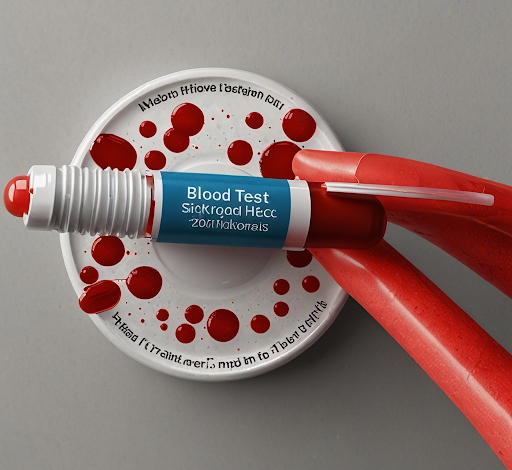
An MCHC blood test is a diagnostic test that measures the concentration of hemoglobin in a given volume of red blood cells. MCHC stands for Mean Corpuscular Hemoglobin Concentration, and it provides valuable information about the health of your red blood cells and overall blood health. This test is typically part of a routine complete blood count (CBC), which is a https://healthcenterscare.co.uk/ standard blood test used by healthcare providers to assess a person’s overall health and detect a variety of disorders, including anemia.
In this article, we’ll break down what MCHC is, how the test is performed, why it’s important, and how to interpret the results.
What is MCHC?
MCHC measures the average concentration of hemoglobin in a single red blood cell. Hemoglobin is the iron-rich protein in red blood cells that is responsible for carrying oxygen from the lungs to the rest of the body and returning carbon dioxide back to the lungs to be exhaled.
MCHC is calculated by dividing the amount of hemoglobin by the volume of red blood cells (hematocrit) in the blood sample, and it is usually expressed in grams per deciliter (g/dL).
How is the MCHC Blood Test Performed?
The MCHC test is typically done as part of a complete blood count (CBC), a routine blood test. A healthcare provider will take a blood sample, usually from a vein in the arm, using a needle and syringe. The blood sample is then sent to a laboratory for analysis, where the MCHC value will be calculated along with other components of the CBC, such as:
- Red blood cell (RBC) count: The number of red blood cells in a given volume of blood.
- Hemoglobin (Hb): The amount of hemoglobin present in the blood.
- Hematocrit (Hct): The percentage of blood volume made up of red blood cells.
- Mean Corpuscular Volume (MCV): The average size of red blood cells.
Why is the MCHC Blood Test Important?
The MCHC test is important because it provides insights into the health of your red blood cells. Abnormal MCHC values may indicate underlying medical conditions that could affect the body’s ability to transport oxygen or cause other blood-related issues. Some common conditions that may lead to abnormal MCHC levels include:
- Anemia: A condition where there are not enough healthy red blood cells to carry adequate oxygen to the body’s tissues. Low MCHC levels may indicate a type of anemia where the red blood cells are smaller and less filled with hemoglobin.
- Spherocytosis: A genetic disorder where red blood cells are sphere-shaped instead of the normal donut shape. These misshapen cells are often less effective at carrying oxygen, leading to increased MCHC levels.
- Hyperchromic anemia: This condition occurs when red blood cells contain more hemoglobin than usual, leading to higher MCHC values.
- Dehydration: Severe dehydration can lead to increased concentration of red blood cells in the blood, which can affect MCHC levels.
What Do MCHC Test Results Mean?
The results of your MCHC test are typically reported as a numerical value, usually in grams per deciliter (g/dL). The normal range for MCHC is typically between 32 to 36 g/dL, though it may vary slightly depending on the laboratory and the method used.
Abnormal MCHC Levels
Low MCHC (Hypochromia):
A low MCHC result indicates that the red blood cells have less hemoglobin than normal, which often suggests that the cells are paler and unable to carry sufficient oxygen. This can be seen in:
Iron-deficiency anemia: One of the most common types of anemia, which occurs when the body lacks enough iron to produce hemoglobin.
Thalassemia: A genetic blood disorder that affects hemoglobin production and causes low MCHC levels.
Anemia of chronic disease: A type of anemia that is commonly seen in individuals with long-term illnesses such as kidney disease, cancer, or autoimmune disorders.
High MCHC (Hyperchromia):
A high MCHC result suggests that the red blood cells have an unusually high amount of hemoglobin. This can occur in certain conditions, such as:
Hereditary spherocytosis: A condition where the red blood cells are abnormally shaped, often leading to an increase in MCHC.
Autoimmune hemolytic anemia: A condition where the immune system destroys red blood cells, sometimes leading to a higher MCHC.
Dehydration: Severe dehydration can lead to a higher concentration of hemoglobin, skewing the MCHC value.
What Causes Abnormal MCHC Levels?
Low MCHC can occur due to conditions like iron deficiency, anemia, or thalassemia, where the body doesn’t have enough hemoglobin or produces defective hemoglobin.
High MCHC could be caused by genetic conditions like hereditary spherocytosis, or from external factors like dehydration, where the blood becomes more concentrated.
Next Steps After Abnormal MCHC Results
If your MCHC levels are outside the normal range, it’s important to follow up with your healthcare provider. A high or low MCHC result could point to underlying conditions that may require further investigation or treatment. Depending on your results and overall symptoms, your healthcare provider may recommend:
- Additional tests to assess red blood cell size, hemoglobin levels, and other markers of blood health.
- A comprehensive physical exam and medical history review.
- Treatment options for conditions like anemia, dehydration, or other blood disorders.
Conclusion
The MCHC blood test is a valuable tool for assessing the concentration of hemoglobin in your red blood cells. By measuring this, the test helps healthcare providers identify potential blood-related issues like anemia or more serious conditions such as hereditary spherocytosis or autoimmune hemolytic anemia. If you’ve had an abnormal MCHC result, it’s important to discuss your results with a healthcare professional, who can recommend further diagnostic steps or treatments based on your individual health status. Regular monitoring of blood health is essential for maintaining overall well-being, and tests like MCHC play a key role in this process.


